By Kennedy Library Archives Staff
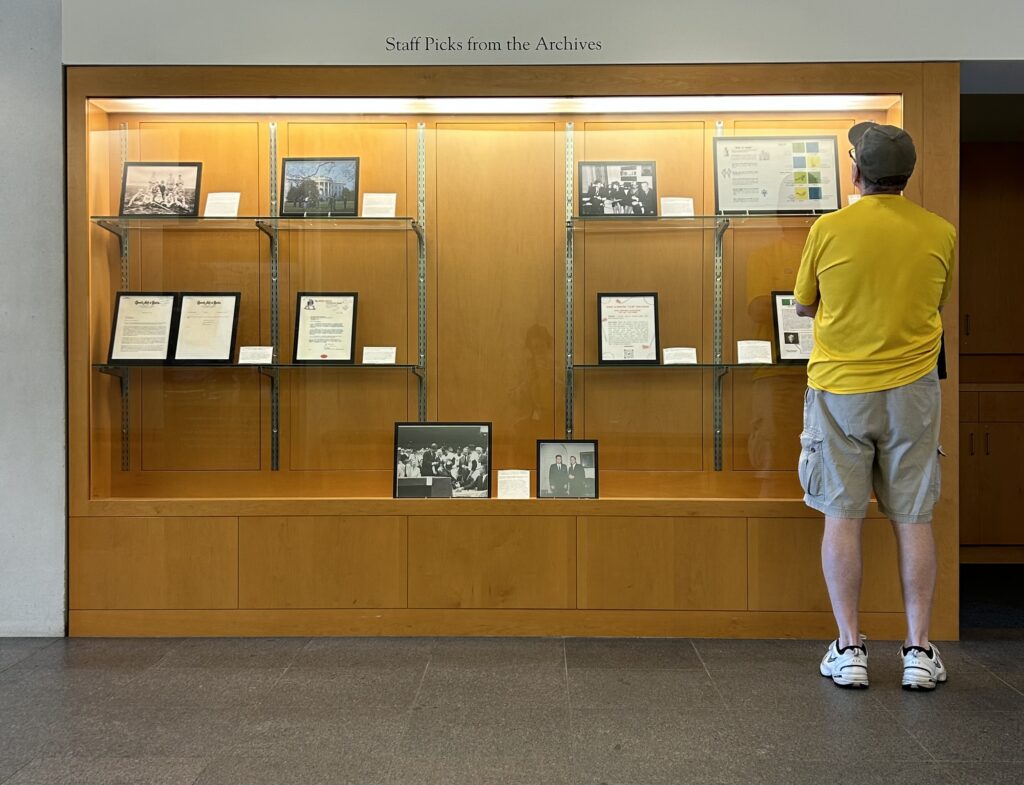
It’s time for the fifth installment of our Archives Staff Picks! Inspired by the 2024 Olympic Games, the theme is sports. We selected documents, images, audio, and oral histories that have caught our eye during the course of our archival work. We love being able to share our discoveries with you — whether in person in the Library’s lobby or in the virtual version below!
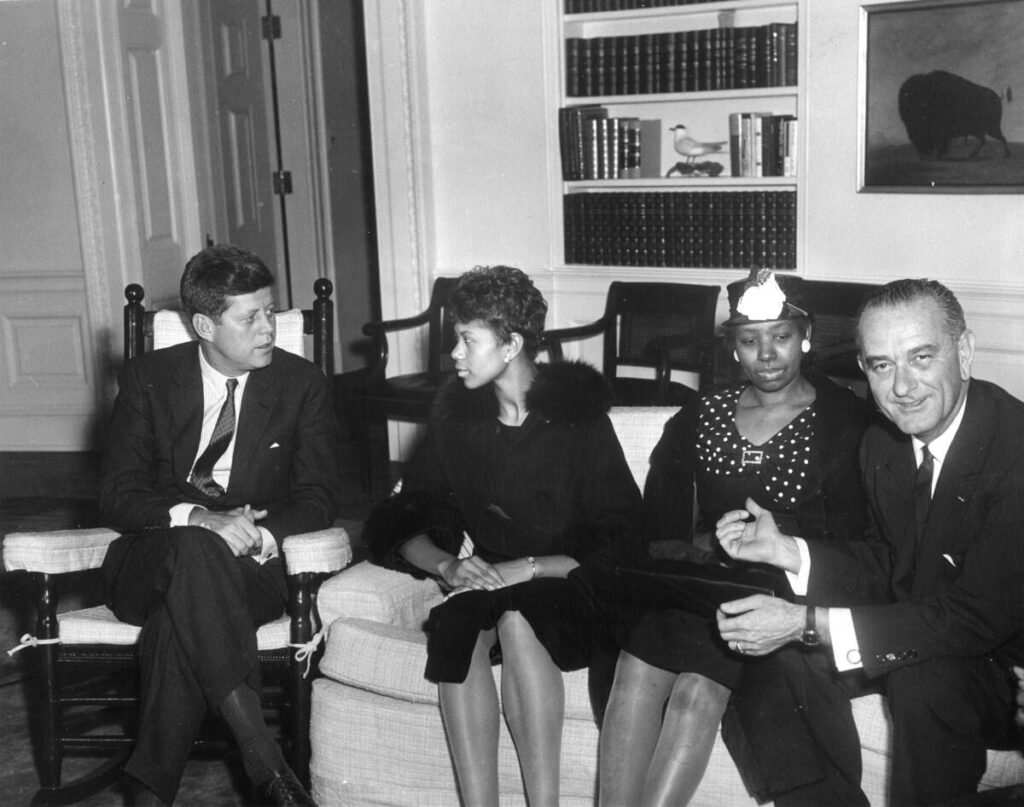
In April 1961, three-time Olympic gold medalist Wilma Rudolph and her mother, Blanche Rudolph, met with President John F. Kennedy and Vice President Lyndon B. Johnson. Rudolph was a record-setting sprinter, international icon, and a pioneer in civil rights, women’s rights, and sports advocacy; as a lifelong runner, she’s one of my history heroes, and it was so cool to work on this image while cataloging the White House Photographs. I just wish we knew what she and the President were discussing in this moment — they both look very engaged!
–Stacey, Archives Reference

As an oral history archivist, I love looking in the collection for candid stories and anecdotes that you might not find anywhere else, and this is a great example. Lem Billings was a lifelong friend of JFK from their early school days at Choate. In his oral history interview he talks about trying to play golf with President Kennedy.
-Jennifer Marciello, Archives Processing and Oral History
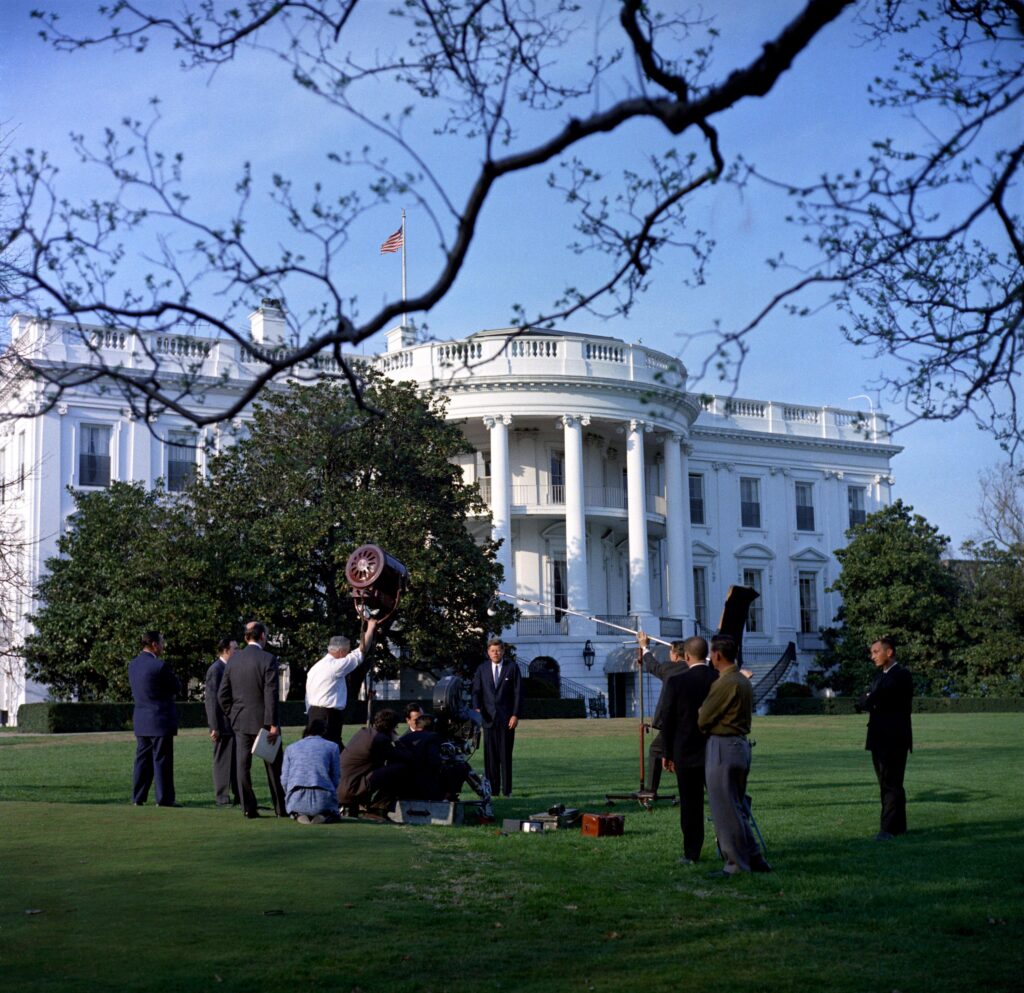
President Kennedy, a strong proponent of physical fitness as integral to the strength of the nation, stood on the South Lawn of the White House to record remarks for a film on physical fitness, saying “…I speak not only as President of the United States but also as a parent of two children who I hope will grow up with those qualities of vigor and energy which we identify with the best of America. This should be a matter of concern to us all. A country is as strong, really, as its citizens….”
As an audiovisual archivist, I just love this photo! President Kennedy and the film crew standing on the lawn with audio and film equipment on the ground, filming underway, provide the visceral feeling of being on set. I find the framing of the President by the key light and boom microphone, and the trees and branches, effective and aesthetically appealing.
-Maryrose, Archives Reference
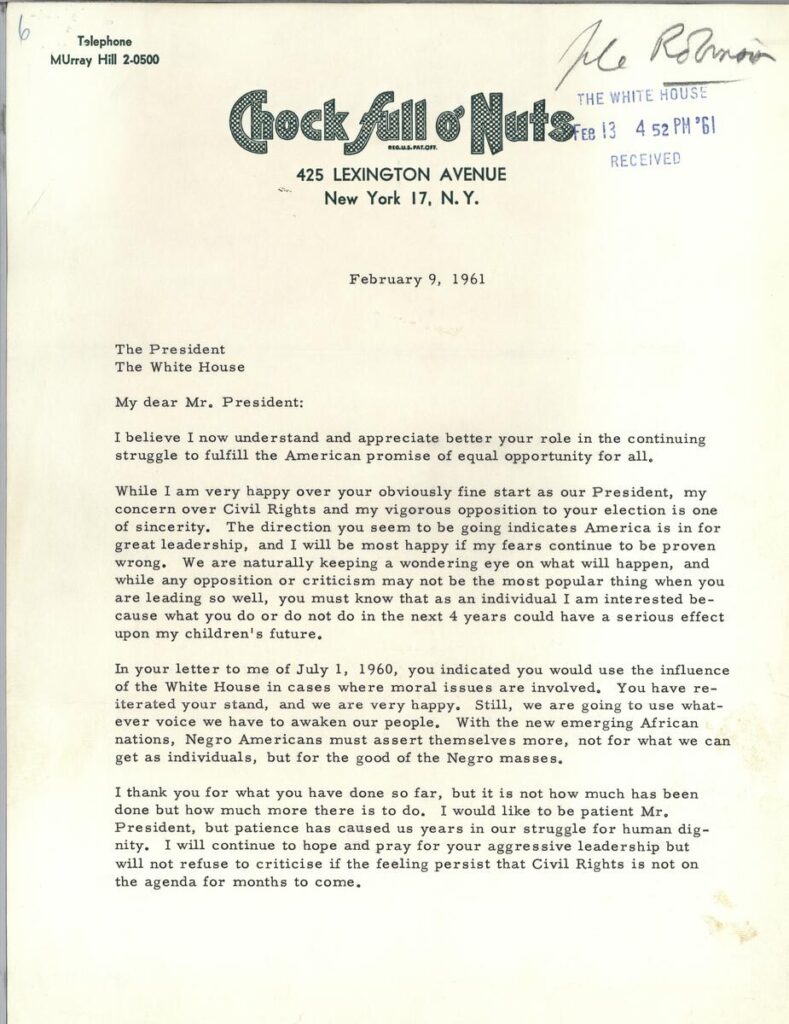
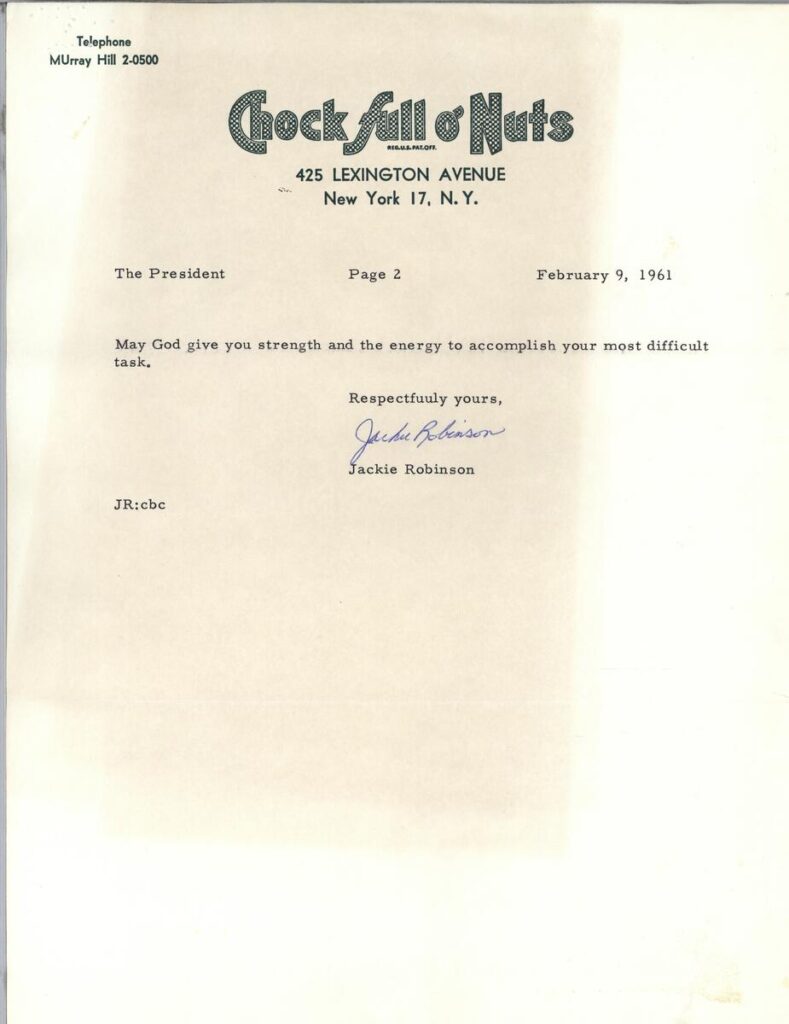
Jackie Robinson wrote this letter to President Kennedy shortly after the 1961 inauguration reiterating his initial opposition to Kennedy’s campaign and reminding the President how much left there is to do for civil rights. This document gives us a glimpse into the post-baseball career of Jackie Robinson and shows his continued influence and leadership in the civil rights movement.
–Corbin, Archives Reference
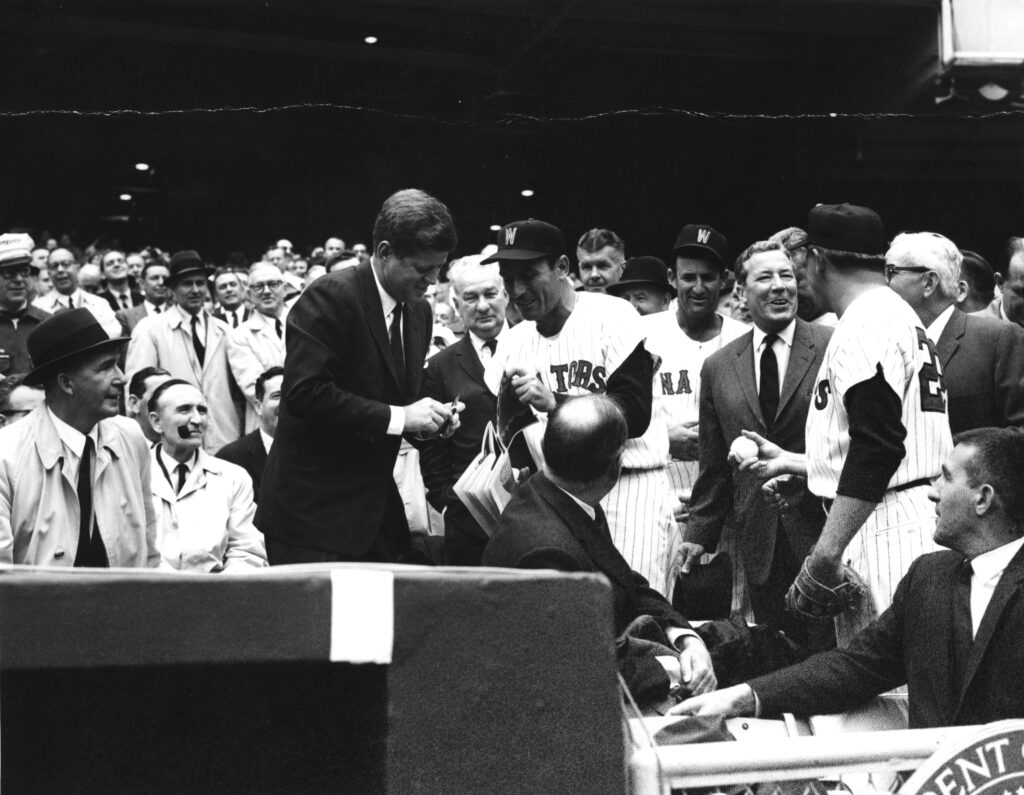
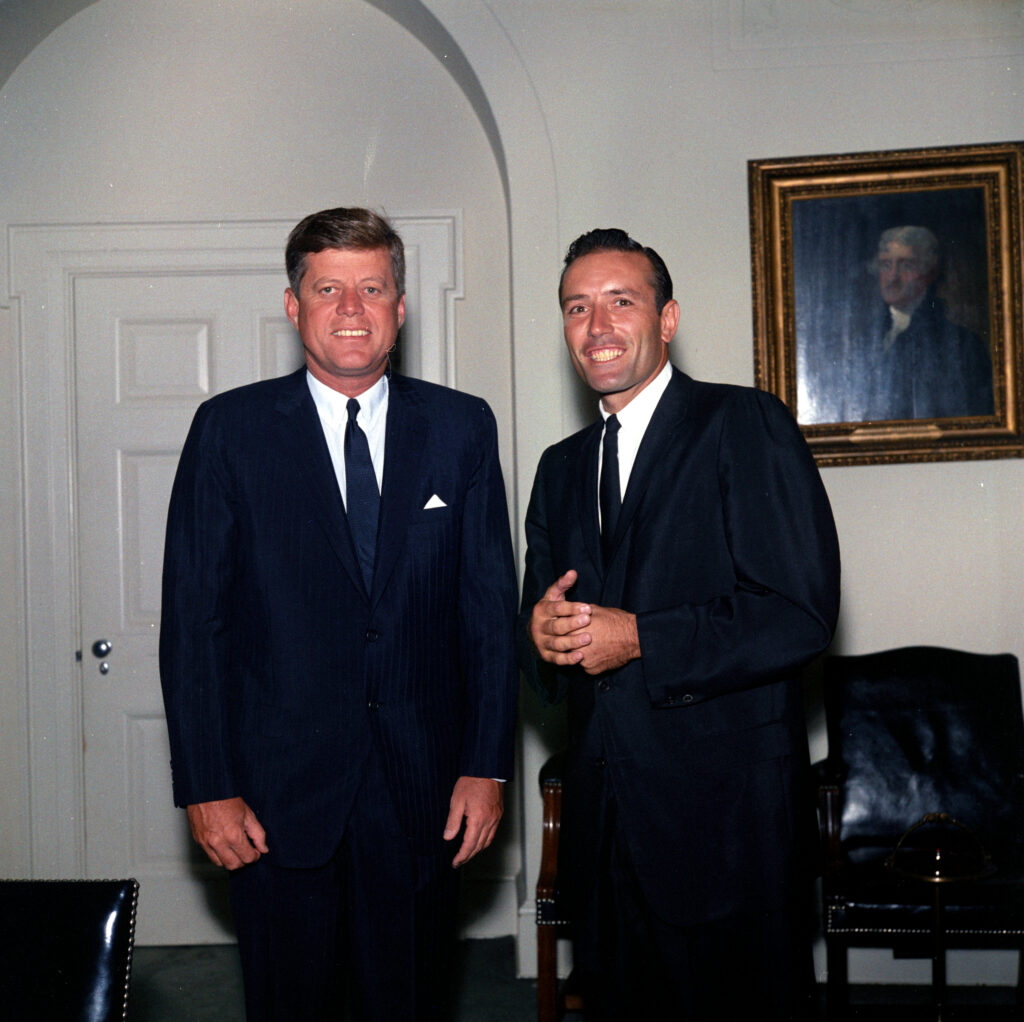
President John F. Kennedy stands with Washington Senators baseball player Jimmy Piersall in D.C. Stadium, Washington, D.C., on opening day of the 1962 baseball season and later that same year in the Cabinet Room of the White House. Mr. Piersall sometimes behaved unpredictably during his 17 seasons in Major League Baseball. He openly described his mental health experiences in his memoirs, and his first, Fear Strikes Out, was adapted for both television and the big screen. In his book The Truth Hurts he recounted that it was during his time as a member of the Boston Red Sox when he first met President Kennedy, who was then serving as a senator from Massachusetts. Mr. Piersall also wrote that he’d had a summer home in Hyannis Port “only about a block from the Kennedy compound,” and that opening day of the 1962 baseball season “was one of the great thrills of my life.”
–Bill, Archives Digitization
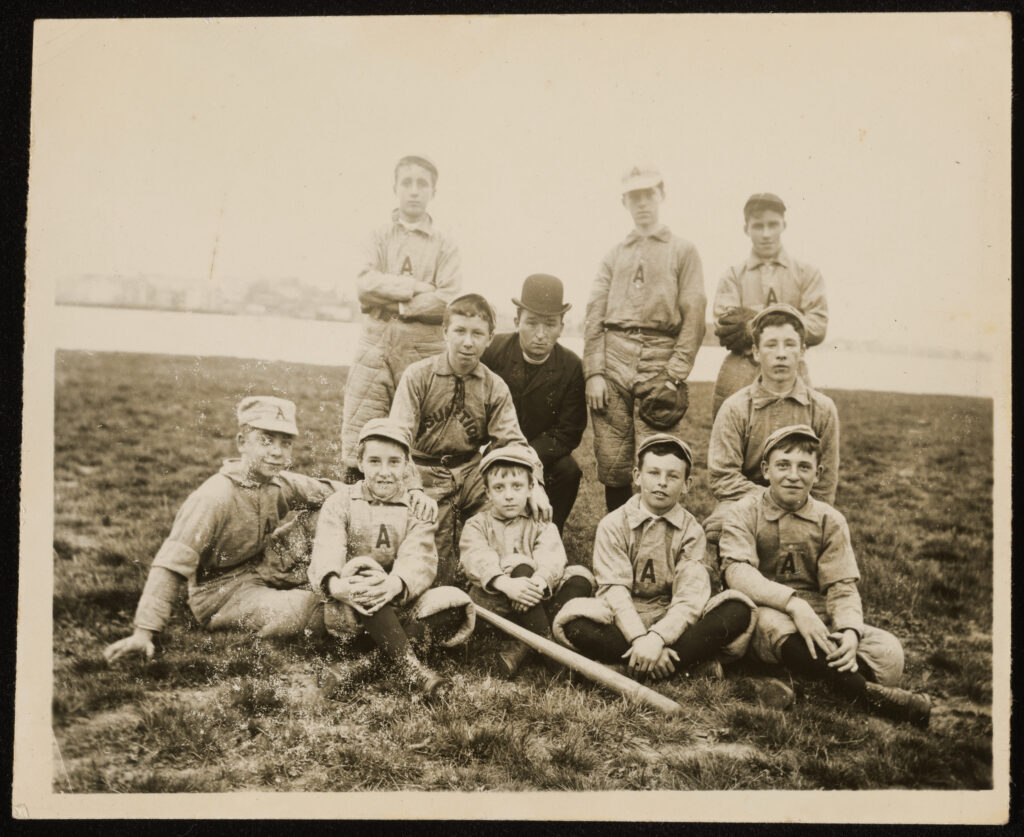
In this photograph, President Kennedy’s father, Joseph P. Kennedy, Sr. (standing in the back row, second from right), is pictured as a teenager, circa 1905, with the Our Lady of the Assumption Parish baseball team in East Boston.
Many people don’t know that the JFK Library holds materials that pre-date the Kennedy Administration, but this photo is from one such collection: the Kennedy Family Collection. Donated to the Library by President Kennedy’s mother, Rose Fitzgerald Kennedy, it contains photographs, scrapbooks, and albums that document the lives of both the Kennedy and Fitzgerald families, as far back as the late 19th century.
I chose this photograph because it shows a bit of the history of the Kennedy family’s athletic legacy, as well as its roots in East Boston, where the President’s father was born and raised. East Boston is a peninsula that juts out into Boston Harbor; in the background of this photo we can see one of the channels of the inner harbor, and beyond that, what appears to be part of the city’s industrial waterfront. Less than 20 years after the Assumption team posed for this photograph, Logan International Airport opened just to the east of this spot, making East Boston a major international travel hub. Airplanes are frequently visible from the JFK Library, flying low upon their approach to Logan.
-Laura, Archives Digitization
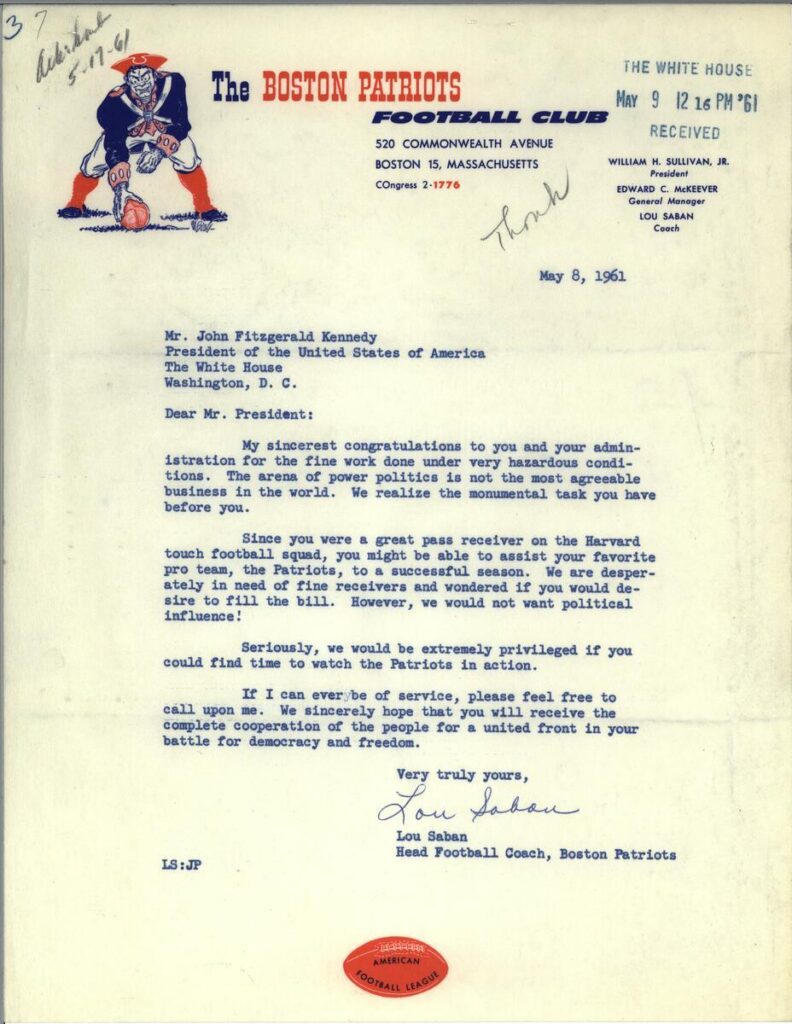
Lou Saban, Head Coach of the Boston Patriots (now the New England Patriots) wrote this fun letter to President John F. Kennedy in 1961. The archives team found it during the Patriots’ 2015 season, and we especially loved this playful request, made in light of the President’s college football experience: “We are desperately in need of fine receivers and wondered if you would desire to fit the bill”!
-Stacey, Archives Reference
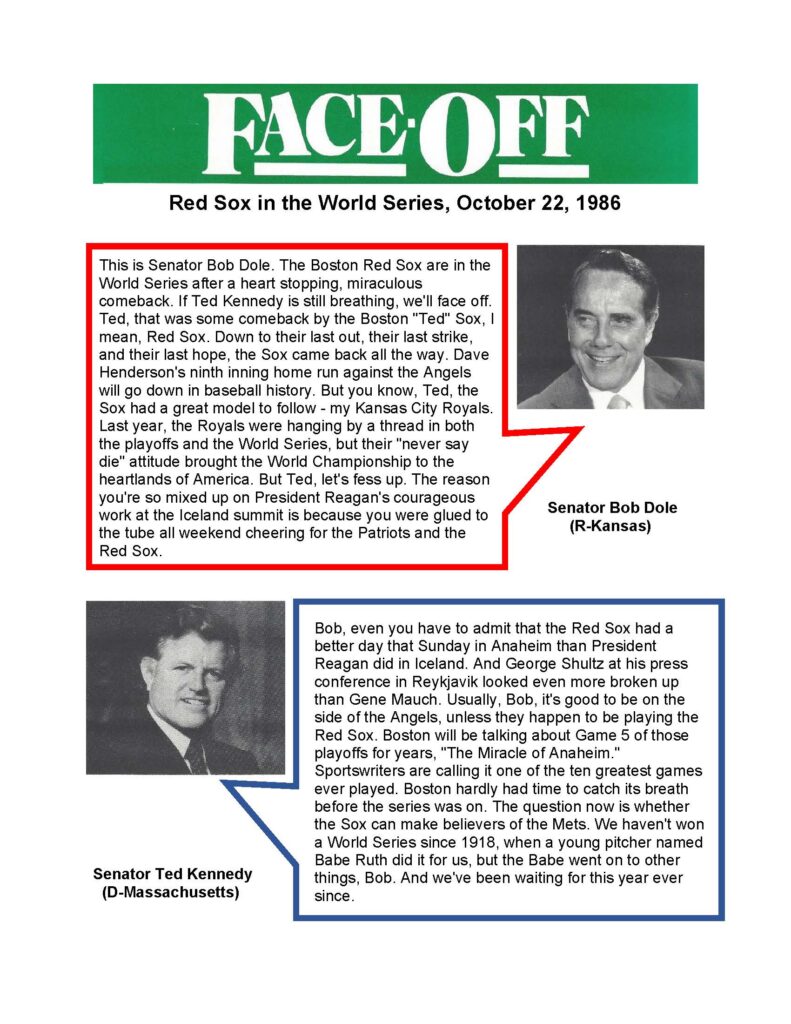
“Face Off” was a radio program that featured lighthearted political debates between Senator Edward M. “Ted” Kennedy and several of his Republican colleagues. It aired on the Mutual Broadcasting System for many years. This episode was written in a brief window of time when Boston sports fans thought that the Curse of the Bambino might finally be over. Unfortunately, their dreams were dashed just three days later in the disastrous Game 6, which immediately replaced “The Miracle of Anaheim” as one of the most famous games ever played in the history of professional baseball. The Red Sox would have to wait to break the curse until the 2004 World Series.
-Christina, Archives Processing
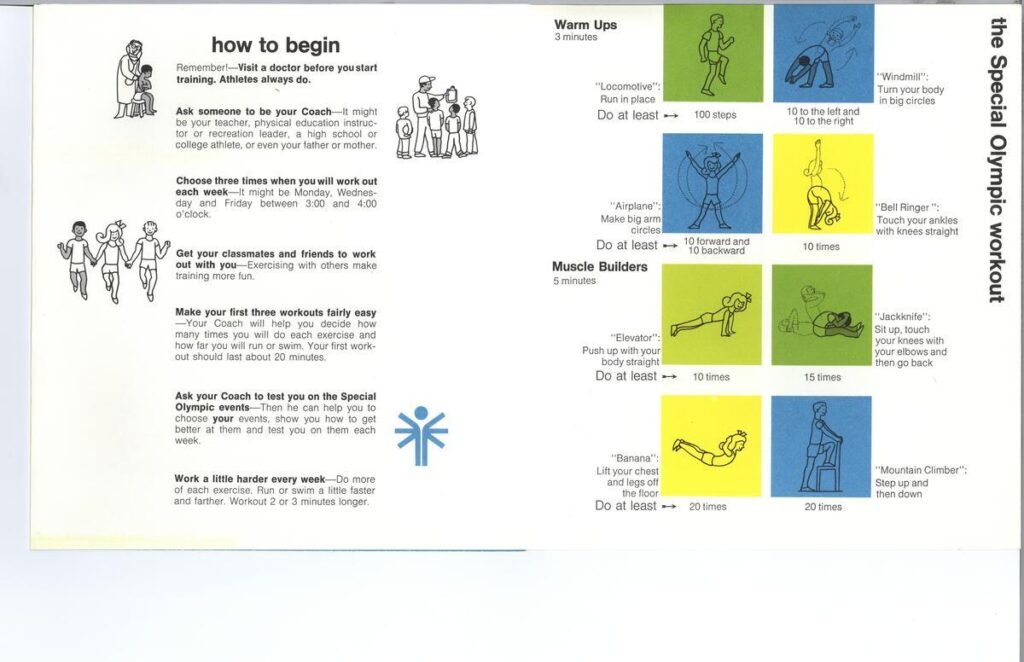
The first International Special Olympics Games were held in Chicago, Illinois in July 1968. Eunice Kennedy Shriver, founder of the Special Olympics, believed the Games proved that children with intellectual disabilities can be exceptional athletes and that “through sports they can realize their potential for growth.”
This page from a Special Olympic Training Plan helps the athletes get started on their journey. I love the graphics and the empowering nature of the program. Now, please excuse me while I go do some Airplanes…
-Abbey, Archives
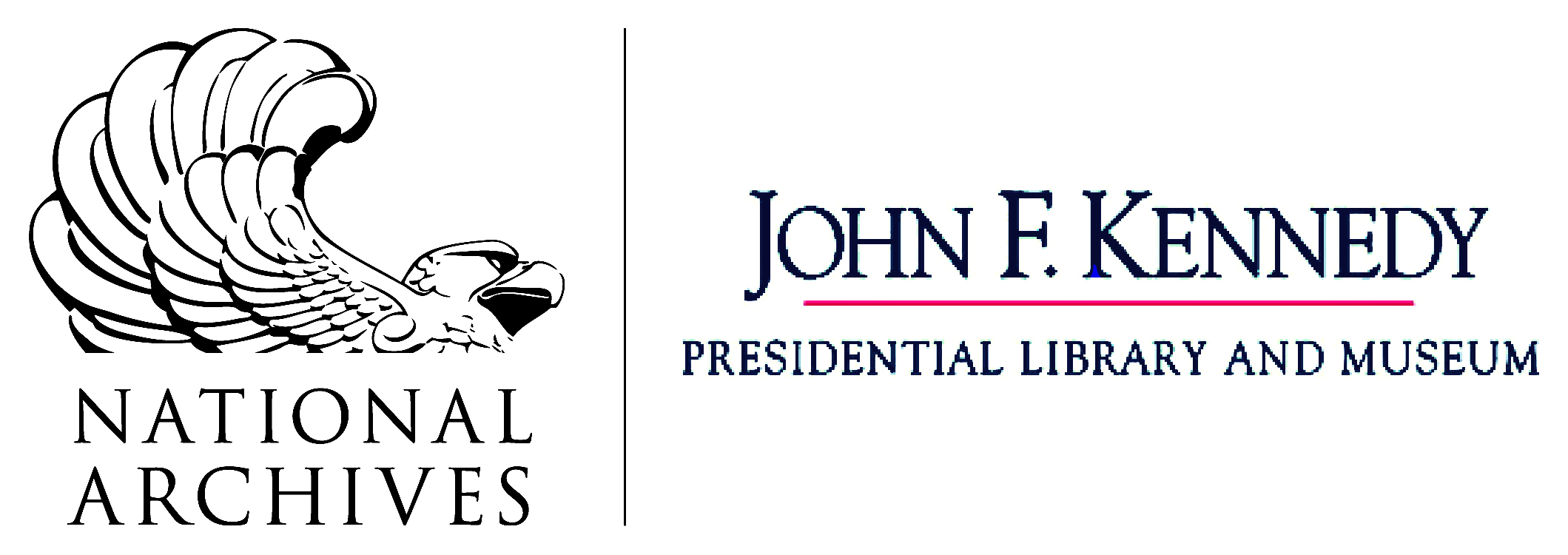
I only knew Jimmy Piersall from the late 1970’s when he’d broadcast White Sox games with Harry Caray. My mom grew up listening to the Cardinals but got away from following the sport upon reaching adulthood. She was so surprised that Caray had switched to calling American League games and was teamed up with Piersall.